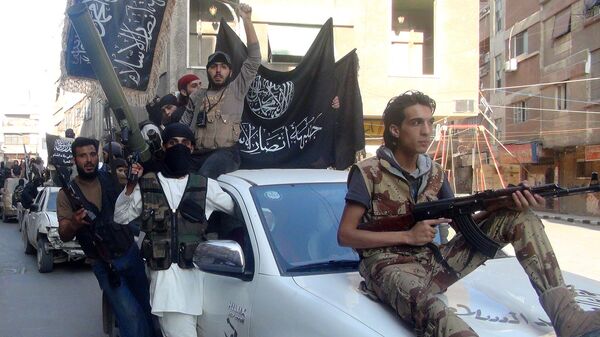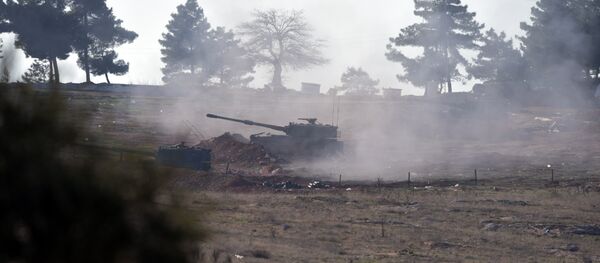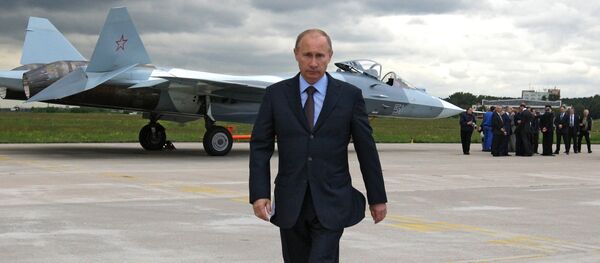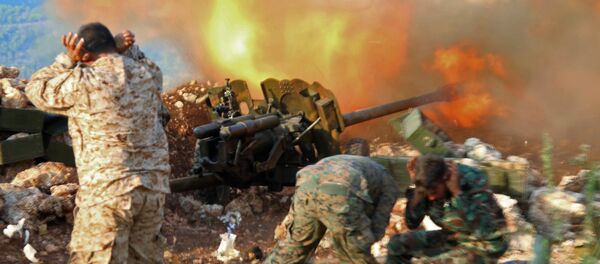The Russian air operation in Syria, in the analyst's view, has three objectives: a) to see Russia become a regional or even global power through a successful demonstration of its ability to resolve conflicts in the Middle East; b) to support the Syrian government "so that it will eventually become de facto the single bulwark against Al-Qaeda and Daesh (ISIL)," and c) to fight against radical Islamism, which poses a threat not only to the region, but to Russia and its 20 million-strong Muslim community as well.
"Which of these objectives are a threat to the West?" Lombardi bluntly asked. "One must be either blind or a complete idiot not to notice that, when Russia defends its interests in the Middle East, it is simultaneously defending the interests of Europe, and particularly those of France," the analyst bitingly added.
France's diplomats, Lombardi notes, "quickly forget that the Russians were the first to support our intervention in Mali in 2013! More recently, who was it that offered their support when we sent our fleet and aircraft to the eastern Mediterranean in retaliation for the November bombings? Again, it was the Russians!"
"Let's not deceive ourselves," the analyst says. "Today, the only threats to the world order are our 'allies' – the Turks and the Saudis; the same people whose double game with some terrorist and jihadist groups has appeared out in the open; the same people who still want to install the Salafists or the Muslim Brotherhood in Damascus and in all the Arab capitals affected by the Arab Spring."
Turkish President Recep Tayyip Erdogan's dream of becoming the neo-sultan of a neo-Ottoman empire has been fading before his eyes, Lombardi warns. Facing growing international isolation, Ankara is supported in its Syria policy only by Saudi Arabia. And here, more and more frustrated, the world is in danger of a Turkey attempting to involve NATO in a war against Russia.
"In blocking the current negotiations," Lombardi notes, Turkey is "paradoxically allowing the Russians to gain time to shell all of Bashar Assad's opponents, without distinction. Thus, frustrated, angry and feeling abandoned by the Americans, Ankara might act unpredictably. The danger is that Erdogan might decide to [openly] cross the Syrian border with his army."
"Such a move would never receive a mandate from the UN Security Council (where Russia and China have the right of veto). He [Erdogan] expects an escalation, and an error on Russia's part, in order to evoke Article 5 of the NATO charter, which would force the alliance to help him, and which, incidentally, would be catastrophic. Serious provocations, along the lines of the downed Russian jet last year, must be expected. Hopefully, the Russians will not fall into a trap, and keep their cool. And we must hope, above all, that the Americans, one way or another, succeed in returning their turbulent 'ally' to reason."
Ultimately, Lombardi concludes, "in Syria, whether we like it or not, the solution proposed by Russia is the most serious, the most reasonable, and corresponding to common interests."





